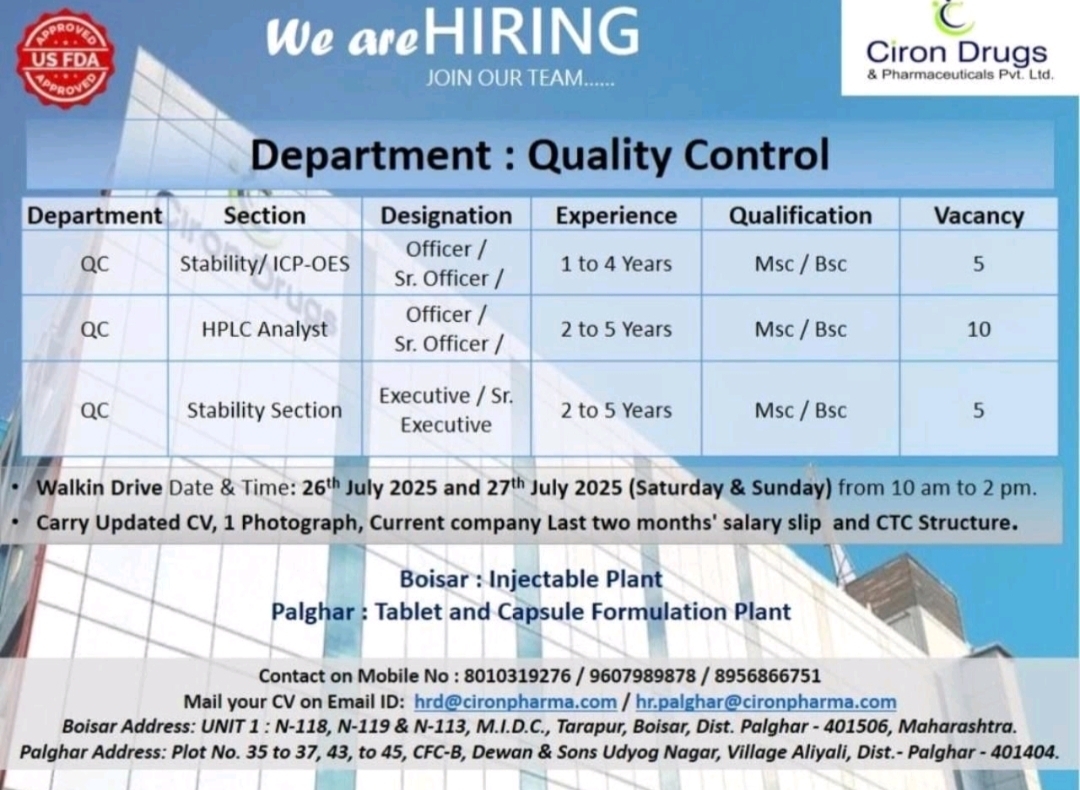Orchid Pharma Hiring: Quality Control Chemist (Trainee) – Fresh M.Sc. Chemistry Graduates Apply Now!
Orchid Pharma, a trusted name in the pharmaceutical industry, is offering an excellent opportunity for M.Sc. Chemistry graduates to kickstart their careers. The company is hiring for the position of Quality Control Chemist (Trainee) at its Chengalpattu facility in Tamil Nadu.
This opening is perfect for candidates with 0–1 year of experience who are eager to gain practical exposure in the field of pharmaceutical quality control.
💼 Job Details
-
Position: Quality Control Chemist (Trainee)
-
Department: Quality Control
-
Qualification: M.Sc. Chemistry
-
Experience: 0–1 Year
-
Location: Chengalpattu, Tamil Nadu
🌟 Why Join Orchid Pharma?
Starting your career at Orchid Pharma means becoming part of a reputed organization known for its commitment to innovation, compliance, and quality. As a Quality Control Chemist (Trainee), you will gain hands-on experience with advanced analytical techniques such as HPLC (High-Performance Liquid Chromatography) and other essential quality testing procedures.
This role is an ideal entry point for those passionate about laboratory work, regulatory standards, and ensuring product quality in the pharmaceutical domain.
📩 How to Apply
Interested candidates can apply directly or reach out to the recruiter for more details:
-
Contact Person: Kanagavel M
-
Email: kanagavelm@orchidpharma.com
-
Phone: +91 88709 11031
Don’t miss this chance to launch your pharma career with Orchid Pharma — one of India’s leading pharmaceutical companies known for its quality-focused manufacturing practices.


























